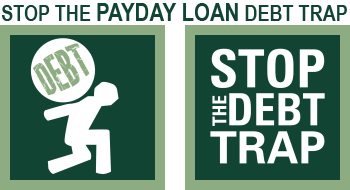
Highlight
Why are payday loans so popular with the military?
July 11, American Banker
Short-term lending products bridge a financial gap for their users, but the rates that lenders charge — and sometimes obscure as fees — can verge on predatory. Most consumers avoid these products, but active members of the military seem to embrace them.
More News
Latest battle over California lending market: Should grocery stores offer large loans?
July 13, The Virginian-Pilot
Walk into a Northgate supermarket and, along with produce and pan dulce, you can walk out with a small loan from the store’s Prospera financial services stand. Those loans top out at $2,500. Now, a bill working its way through the state Legislature could boost that maximum to $7,500 — enough, the bill’s author said, to pay for an immigration lawyer or a funeral.
What Trump’s Supreme Court nominee Brett Kavanaugh could mean for consumer rights
July 13, Market Watch
When President Donald Trump announced Brett Kavanaugh as his nominee for the Supreme Court to replace Justice Anthony Kennedy when he retires at the end of July, liberal commentators sounded the alarm about what his service could mean for controversial topics including abortion and health care. Add one more topic to the list: consumer rights.
Main Line ‘godfather of payday lending’ gets jail
July 11, Main Line Times
A 77-year-old Main Line man described as the “godfather of payday lending” was sentenced Friday to 168 months in federal prison and ordered to pay a $2.5 million fine. Charles Hallinan, 77, of the Villanova section of Radnor Township, was jailed in connection with a scheme to collect hundreds of millions of dollars in unlawful debt obtained from high-interest loans. He also was ordered to forfeit more than $64 million gained from his illegal acts, as well as several luxury automobiles and his Main Line mansion.
N.Y. Regulator Challenges Bank-Fintech Partnership Model
July 11, Bloomberg
New York’s top financial regulator is challenging a fundamental principle of fintech-bank partnerships in a bid to clamp down on lenders avoiding state interest rate caps.
